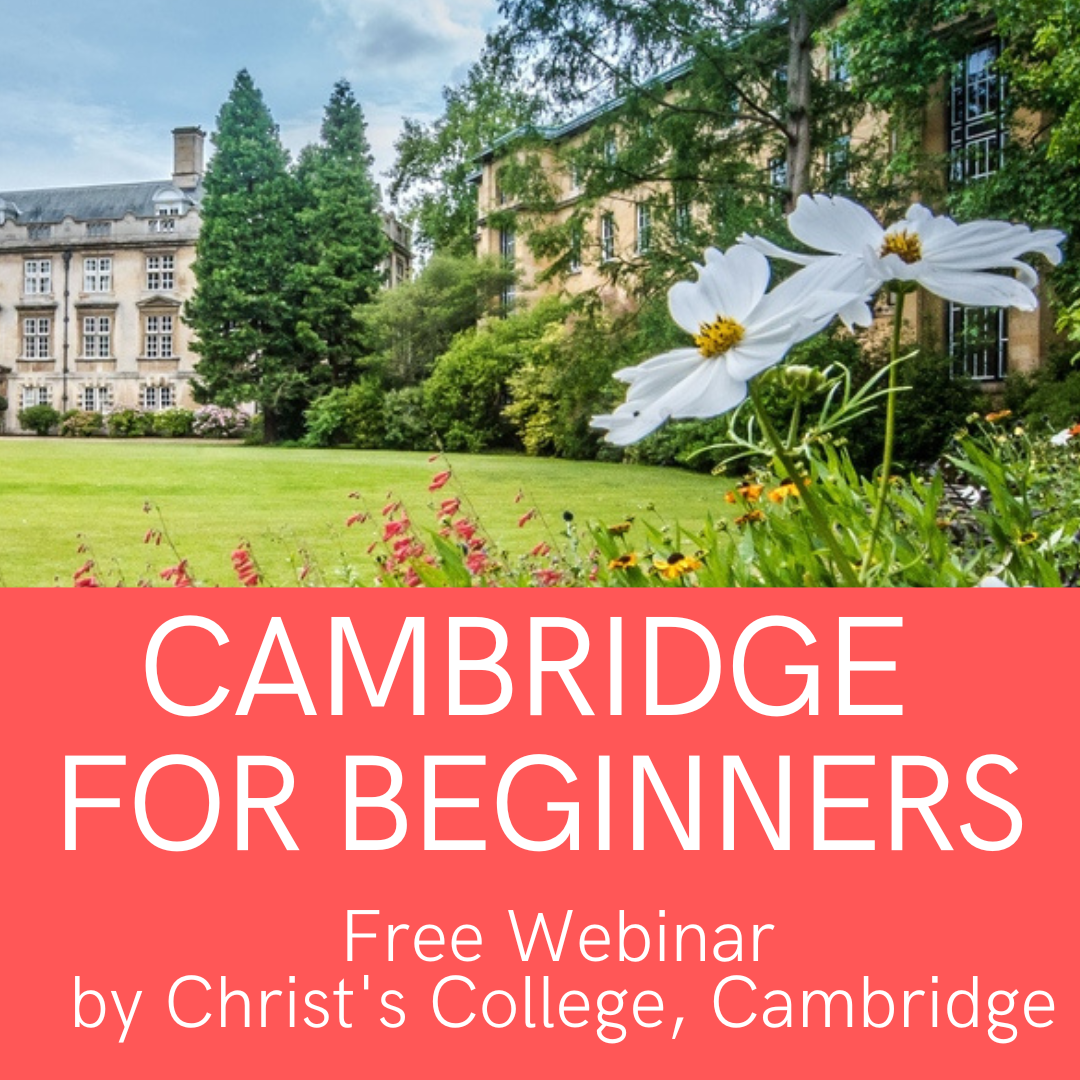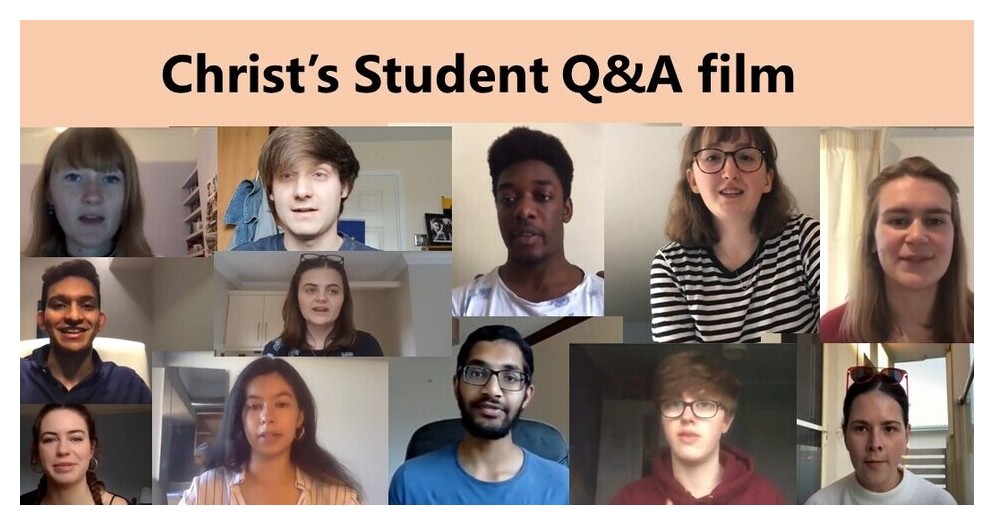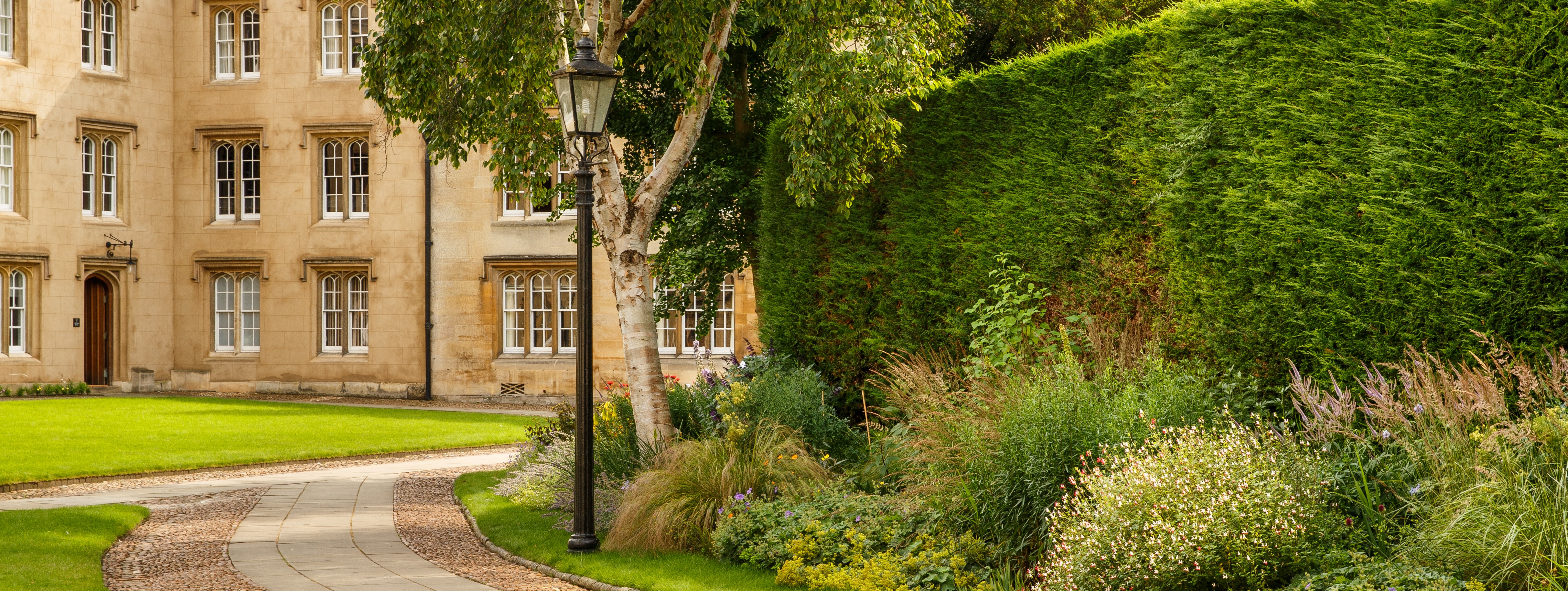
Christ's usually welcomes a small, close-knit cohort of undergraduates in Chemical Engineering and Biotechnology, which means each student benefits from plenty of personalised guidance and individual attention.
Our graduates pursue further study or move into in various sectors, ranging from classical chemical engineering with major oil companies and public utilities, to financial services and management consulting. Some have opted to work in the food industry (for companies such as Mars), in consumer products (Unilever, P&G) or for well-known cosmetics companies.
The course concentrates on the scientific principles that underpin the discipline. These principles are essential to develop processes and products that address some of the problems currently facing humanity. These include the energy transition away from fossil fuels, the need for sustainable food and water supplies as climate change occurs, and the provision of improved global healthcare solutions and therapeutics.
Please check the Department of Chemical Engineering and Biotechnology website course structure page and the Chemical Engineering and Biotechology course information for more detail, including the course film. If you have further questions about the course content, please contact admissions@ceb.cam.ac.uk.
Christ’s College Director of Studies in Chemical Engineering is Dr Tom Matthams. He can advise you on choosing options and arranges your twice-weekly ‘supervisions’. During these small tutorial teaching sessions (usually in groups of two) you receive support and tuition tailored to your personal work. As other universities usually tutor in much larger groups, this approach is a real advantage of a Cambridge education.
If you’d like to pursue interests beyond Chemical Engineering, you can attend almost any other lecture at the University. Many students take advantage of this to learn or improve a foreign language. And there are plenty of academic societies which hold interesting events and talks – look out for the Cambridge University Chemical Engineering Society (CUCES)
The Chemical Engineering course has changed since Dave studied it (students now study Chemical Engineering from the first year), but this student profile may still be helpful.
If you would like to hear from other Christ's students, please watch the Christ's student Q&A film, and visit our Student Profiles page.

Now I’ve got the hang of planning my days and weeks and I’m able to keep up with the work while doing social activities like sport and nights out. I try to plan my days around any commitments and work-related activities so that I can attend and complete everything I need to in good time.
How to apply
Visit How to Apply for full details and a timeline of the application process, and the information specific to Chemical Engineering is under the drop-down titles below. We welcome applicants from all backgrounds and school types, all over the world. If you're applying from outside the UK, please read our international students section.
In your UCAS application, you should apply for Chemical Engineering and Biotechnology (UCAS code H810)
News
> All applicants for Chemical Engineering and Biotechology at Cambridge take the ESAT. Please see the ESAT section below for dates and further details. We recommend that you register at the first opportunity once registration is open.
Required A-level, IB Higher Level, Scottish Advanced Higher or equivalent subjects for Chemical Engineering and Biotechnology at Christ's are
> Mathematics
> Chemistry
> one further subject out of Physics, Further Maths or Biology
For A level candidates, if you would like to look at statistics for what subjects recent successful applicants have taken, please see the entry requirements tab in the university course information. If you want to study A level Further Mathematics but your school/college doesn't offer it, you might be able to get support through the Advanced Mathematics Support Programme.
For applicants taking the International Baccalaureate the Mathematics option should be Higher Level Maths: Analysis and Approaches.
We have a section for applicants from Scotland with a page for Chemical Engineering applicants.
We also welcome applicants with a range of other qualifications - see our international entrance requirements page.
All applicants for Chemical Engineering and Biotechnology at Cambridge must sit a computer-based assessment called the ESAT (Engineering and Science Admissions Test) as part of the application process. This is the same at all Cambridge Colleges.
| ESAT 2025: Account set-up opens: Monday 2 June (3pm UK time) Bursary & Access arrangement applications open: Monday 2 June (3pm UK time) Registration opens: Thursday 31 July Registration deadline: 8 Sept, 6pm UK time if you have Access arrangements, otherwise 29 Sept, 6pm UK time ESAT 2025 Test dates: Thursday 9 and Friday 10 October 2025 14 November: ESAT results released to candidates (Dates as confirmed on the UAT UK website) |
You take the ESAT in person at a Pearson Vue Test Centre. There are test centres in countries all over the world. Please read the ESAT summary and then look at the ESAT-TMUA website for full details, including preparation information, how to register and book your test, details for UK applicants in financial need and students who have access requirements for a disability.
There is no set score that we are looking for and we don't expect you to get every question right. The ESAT forms part of our holistic admissions process, which means that we will look at your scores in the context of your whole application.
If we invite you for interviews, these usually take place in early December. Those invited for Cambridge interviews are normally interviewed for 35-50 minutes in total. At Christ’s, we usually split the time into two interviews with subject-relevant academics. Further detail about the format of interviews will be available here nearer the time.
During the interviews we might ask you about topics you’re not familiar with. Our aim is to assess your innate engineering and/or scientific ability when working through unprepared questions and see how quickly you absorb new ideas. It’s not about catching you out. We help you work through unseen problems and ask you to think out loud as you tackle them, so we understand your individual approach.
Further, more general information about interviews (including two useful films) is available in the Cambridge interviews section, and it's worth also having a look at supervisions (short film here), as interviews are similar to what you do every week as a Cambridge student.
At Christ's we don’t have fixed quotas for places, so the number of students we admit in any year depends on the strengths of the applicants. In Chemical Engineering, we aim to admit at least two students each year.
We define the terms of each offer individually, but the minimum offer for Chemical Engineering and Biotechnology is:
> A*, A*, A at A-level in Mathematics, Chemistry and one further subject out of Physics, Further Maths or Biology. We require A-level students to complete and pass the practical assessment in science subjects.
> 42 points overall in the International Baccalaureate with 7,7,6 in Higher Level Mathematics: Analysis and Approaches, Higher Level Chemistry and either Higher Level Physics or Higher Level Biology.
> A1, A1, A2 in three relevant Scottish Advanced Highers (see further information here).
You need to be academically ambitious: the majority of Christ's students arrive with higher grades than are required.
If you're taking another qualification, we expect you to be working at or close to the top of the mark range, for example
> Baccalauréat français international (BFI): 17 (mention très bien) out of 20 overall, with a minimum of 17 in relevant subjects.
> European Baccalaureate: at least 85% overall, with 9/10 in relevant subjects
You can look up other qualifications in the offer levels for other exam systems and international entry requirements, and if you are applying from outside the UK please read the Christ's international students section for further information and check the country pages.
If you will have finished school when you apply, please also read about post-qualification applications, taking a gap year, and, if relevant, applying from a university.
| ESAT preparation materials | Including specification and sample tests with explained answers. There is also an archive of old NSAA papers that contain questions of the kind found in the ESAT. |
| Advanced Mathematics Support Programme | Support for A-level Maths and Further Maths material. See in particular A level Mathematics resources and A level Further Mathematics resources. If you are studying independently, Integral offers an online Further Mathematics course, and there are also free Further Maths videos. |
| Imperial College London A level Further Maths skills course | This is to support students taking Further Maths A level (so you can use the free version) - it does not replace the A level Further Maths qualification. |
| NRICH Mathematics and Advanced STEM NRICH | Maths and Science material |
| I want to study Engineering | Cambridge Engineering Department resource to help you to develop and practice problem-solving skills for Engineering-based courses at competitive universities. |
| Isaac Physics | Website to help you develop problem-solving skills in Physics from GCSE to A-level through to the transition to university. See A-level resources and student support. There is also a mentoring scheme. |
| CEB department’s YouTube channel | Find out more about the Department’s activities |
| Whynotchemeng.com | An introduction to chemical, biochemical and process engineering |
| Nuffield Research Placements | Year 12 opportunity to work on a summer research project. Strict eligibility criteria apply. |
| CamGuides | Introducing the academic and information skills that you will need during your studies, as well as how and where you be working. |
I found the application process pretty straightforward, as there’s lots of information about it available online (first in how to apply, then in the current applicants section).
Come to an Open Day or Webinar
Our open days and events page advertises online opportunities as well as events you can attend in Cambridge (in normal times). These include our regular webinars from February until August, and our College Open Days.
Coming to a Christ's College Open Day is a good way to find out more about the College. You can get a feel for the place and ask current students and staff all about studying Chemical Engineering here.
For a fuller picture of what the course involves, please take a look at Undergraduate Chemical Engineering admissions on the University website and visit the Department of Chemical Engineering and Biotechnology too.
If you have any other queries, please send them to admissions@christs.cam.ac.uk and we’ll help however we can.

